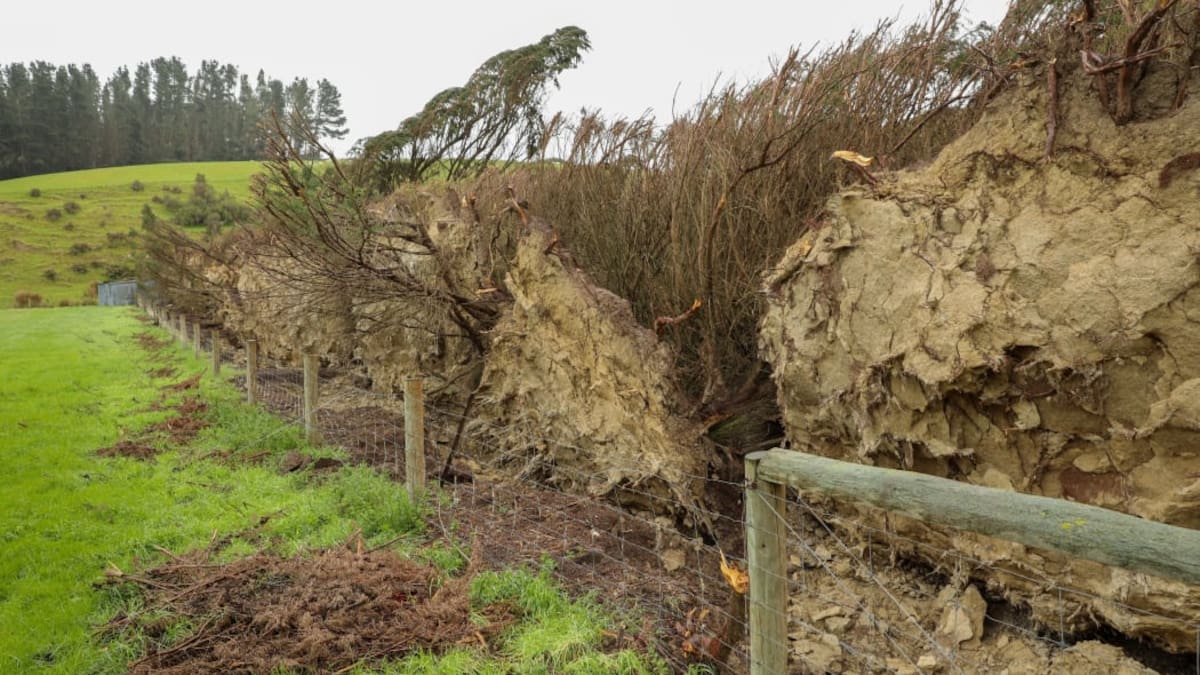“In total there were around 70 farms affected, most of them in the South Island, and of those we probably lost around 30 towers because they were destroyed simply by the sheer force of the wind gusts.
“We jumped on a couple of trucks in Auckland and drove all the way to Southland with replacement equipment for the farmers who were affected over the long weekend and helped get them back up and running.”
The storm put areas of Canterbury, then Southland and Clutha under a state of emergency as thousands lost power, roads and highways were disrupted by slips and many suffered extensive damage from falling trees and buildings.
Espiner confirmed that outages did not cause virtual fences to fail and said there were several “fail-safes” in case power and mobile networks went down.
“When things like this happen, farms have the option to either just stay put so the cows stay within their virtual breaks – or if the farmer wants to move them, he or she can just switch to manual mode and then he or she can move the cows the old-fashioned way.”
He said it had been a “pretty wild spring”, which is why during the recent outages systems switched to battery backup mode so farming could continue as usual.
“So if the power goes out, the entire holder system switches to battery mode and we have at least two to three days of battery backup. So in most cases that's enough to get operations back up and running.”
Espiner said that in most cases, data vital to farmers is automatically backed up for a period of time after the system fails.
“I think we can preserve their data for an outage of less than 20 hours, it doesn't actually have much of an impact.
“I'm pretty happy that we actually managed to get almost all of these farms back up and running within those 20 hours.”
Espiner said for those who lost data, it might only be a single data loss, but his algorithms could help catch up.
“So in most cases, farmers have not lost any important data from our mating systems.”
He said 12 farms in affected regions were in the middle of mating on the day of the storm and 23 were expected to begin mating in the next few weeks.
“It's mating season in some parts of the country and Halter obviously also helps farmers know when the cows are going to be in heat. So it's really important for us to get the data back online for them very quickly because they need that data to know when their accounts are going to be in heat and cyclical.”
“We really prioritized them because this data is simply essential for them to make informed decisions about mating.”
More than 1,000 farms across the country had Halter's virtual fence and pasture management systems.
-RNZ
